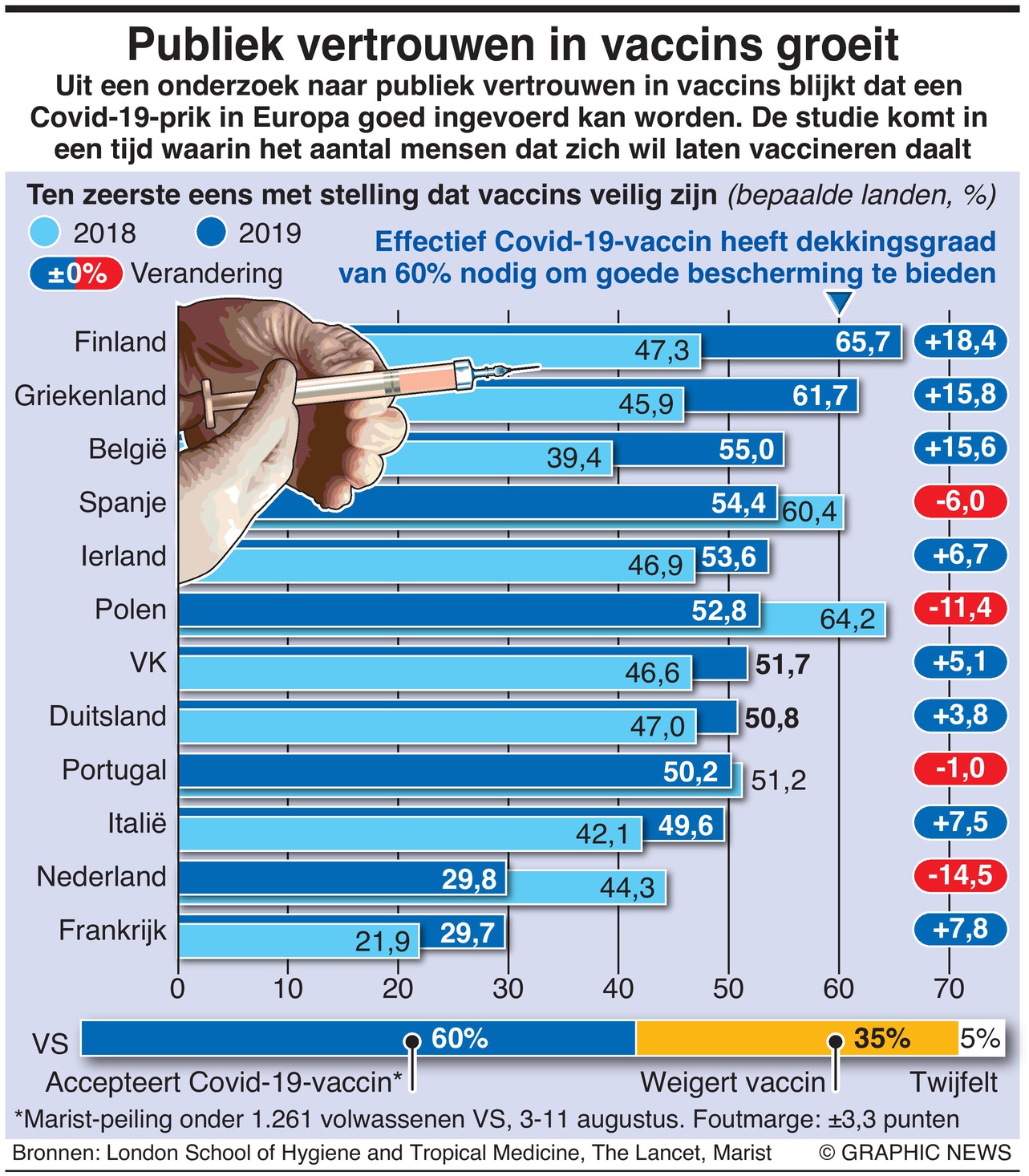September 11, 2020 – A survey of public confidence in vaccines suggests that a Covid-19 jab would have good take-up in Europe. The study comes amid fears that the number of people willing to be vaccinated might be falling.
The largest-ever global survey of vaccine confidence, which covered 284,000 adults in 149 countries, was published in The Lancet medical journal.
Professor Heidi Larson from the London School of Hygiene and Tropical Medicine, who led the research, said that recent figures show that willingness in the United Kingdom has been variable.
“For instance, at the end of March in the UK it was only 5% of the population — when the fatality rates were high — who said that they would not take a Covid-19 vaccine,” Prof. Larson said. “In June that had gone up to about 15% as people saw fatality rates dropping.” Overall, vaccine confidence in the UK rose from 47% in May 2018 to 52% in November last year.
The study found that Poland saw a fall from 64% strongly agreeing vaccines are safe in November 2018 to 53% in December 2019, a decline attributed to a “highly-organised local anti-vaccine movement.”
In France, where vaccine confidence has been consistently low for decades, data show an increase from 22% in 2018 to 30% in 2019.
The proportion of people strongly agreeing that vaccines are safe was as low as 19% in Lithuania, but up to 66% in Finland, and 62% in Greece. Prof. Larson said that an effective Covid-19 vaccine needs 60% uptake to provide adequate protection at the population level.
Prof. Larson said online misinformation is also a significant problem “seeding doubt and distrust.”
A separate US poll released by Marist in August estimated that about 35% of Americans would refuse Covid-19 vaccination.
The World Health Organization lists vaccine hesitancy as one of its top 10 global health threats.




